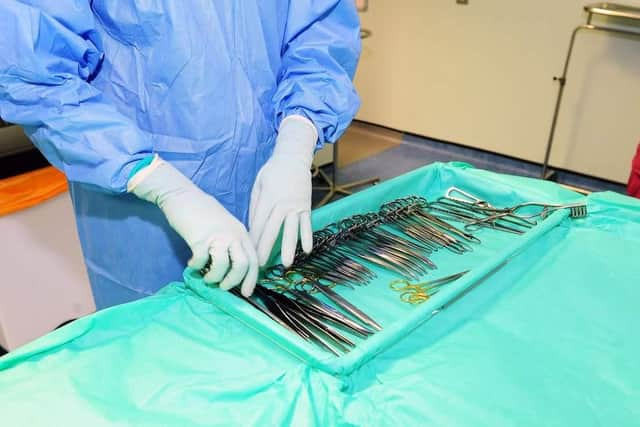Tories tell Humza Yousaf to 'get a grip' on rising NHS waiting lists
More than 10,000 Scots have been waiting more than two years for treatment on the NHS, new figures have showed, with almost 3,000 having endured a similar wait for an outpatient appointment.
Some 550,000 people are now on the NHS waiting list – with 131,620 patients waiting to be admitted for treatment at the end of March and 421,561 people on the list to be seen as an outpatient.
Advertisement
Hide AdAdvertisement
Hide AdThe lists include 10,613 who have been waiting two years or more for help in hospital, either as an inpatient or on a day treatment basis.


Public Health Scotland data also showed that there are 2,831 patients who have been waiting 104 weeks or longer for an outpatient appointment.
Tories challenged Health Secretary Humza Yousaf over the figures while Labour claimed waiting lists were “spiralling out of control” and that the NHS is “on life support”.
The waits for in-patient care come despite the Scottish Government’s legally binding treatment time guarantee, which sets out that most patients should begin treatment within 12 weeks of this being agreed.
A total of 45,998 patients were admitted to hospital for treatment in the first three months of this year, Public Health Scotland figures showed.
While this was up by 3.6% on the previous three months, the number of patients being admitted was over a third (34.8%) less than the totals being treated prior to the Covid pandemic – which averaged at 70,594 for each quarter.
Looking at those waiting for treatment as either a hospital in-patient or a day case patient, the report noted: “There was an increase in the number and percentage waiting over 52 weeks, up from 22.4% (26,698) at December 31 2021 to 23.9% (31,405) at March 31 2022.
“Of those waiting the longest, there has been an increase in the proportion of patients waiting over 104 weeks from 4.3% to 8.1% (10,613, +5,459).”
Advertisement
Hide AdAdvertisement
Hide AdBy the end of March this year, there were a total 131,620 patients waiting to be admitted to hospital for treatment – a rise of more than 10% (12,256) from the end of last year.
Public Health Scotland said the waiting list was now 70.9% higher than the average level it had been at in 2019, prior to the pandemic.
Scottish Conservative health spokesman Dr Sandesh Gulhane branded the new figures as “deeply alarming”.
He stated: “It is astonishing that over half a million patients are still waiting for treatment and that figure is only heading in the wrong direction.”
Dr Gulhane added: “As we emerge from the pandemic, Humza Yousaf must finally show some leadership and get a grip of this soaring backlog.
“He has to accept his flimsy NHS Recovery Plan published over nine months ago simply isn’t cutting it.”
Scottish Labour Health spokeswoman Jackie Baillie said: “Waiting lists are spiralling out of control in Scotland while the SNP sit on their hands. ”
Advertisement
Hide AdAdvertisement
Hide AdAt the end of March this year there were 421,561 patients on the list to be seen as an outpatient – a rise of 6,758 from the end of December 2021.
The outpatient waiting list is now 36.8% higher than the average recorded at the end of the four quarters in 2019, Public Health Scotland added.
It includes 28,993 people who have been waiting a year or more for their appointment, as well as the 2,831 have been waiting 104 weeks or longer.
A Scottish Government spokesperson said: “Pausing of non-urgent activity during the pandemic has inevitably led to a build-up of numbers waiting for treatment, and the emergence of Omicron and the BA.2 subvariant in late 2021 has undoubtedly added to existing significant pressure.
“It is regrettable that we cannot mobilise at the scope and scale we all wish to see, but we have to balance competing demands and pressures, making the best decisions we can, none of which are easy nor taken lightly. These are issues seen in health care systems across the UK.”
Comments
Want to join the conversation? Please or to comment on this article.